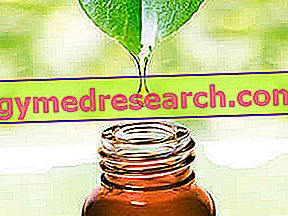What's this
Arginine is an essential amino acid for growing children, but not for adults (since it can be synthesized by the body, especially in the kidneys and liver).

L-Arginine - Chemical Structure
Normally taken in quantities between 3.5 and 5 grams per day, especially through meat, dried fruit and vegetable foods rich in proteins (legumes), Arginine could become essential also in adults subjected to particularly restrictive diets, to stress important psychophysicists or physical traumas.
Arginine content of foods | |
| FOOD | mg / 100g |
| Roasted peanuts | 3736 |
| Hazelnuts | 2824 |
| Dried broad beans, chickpeas, dried lentils, soy | 2000-2200 |
| Meat | 1500-2000 |
| almonds | 1587 |
| Fish | 900-1200 |
| Whole egg | 790 |
| egg white | 576 |
| yolk | 1131 |
| Cheeses | 540 |
| Cereals and derivatives (pasta, bread, rice etc.) | 400-500 |
 | |
By virtue of its biological role and excellent tolerability, L-Arginine has, for several years now, become a supplement particularly used both in clinical and sports settings
Indications
Why is L-Arginine used? What is it for?
L-Arginine is an amino acid classified as conditionally essential, as it assumes a key role in some physiological moments of life, such as adolescence and puberty, and in the course of some pathological conditions such as extensive trauma and burns.
Years and years of studies have allowed us to characterize the biological functions of L-Arginine, identifying some of vital importance for the human organism. Below is a list of some of the most important biological functions of Arginina:
- Glucose synthesis in particular metabolic conditions (gluconeogenesis);
- Protein synthesis;
- Synthesis of Creatine and other amino acid derivatives, fundamental in the cellular economy;
- Detoxification of nitrogen residues;
- Synthesis of nitric oxide, fundamental element with vasodilator power;
- Immunostimulatory action;
- Antioxidant action,

With a certain skepticism, the use of L-Arginine was also accepted by sports dietetics, for the possible myoprotective, anabolic and structural activity.
Property and Effectiveness
What benefit has L-Arginine shown during the studies?
The very interesting biological properties of L-Arginine have evidently pushed towards the use of supplements based on this amino acid.
For these reasons, in literature, despite the constant presence of conflicting opinions, studies on the potential benefits deriving from the use of L-Arginine as a supplement are growing.
L-Arginine and cardiovascular function
The effects of supplementation with L-Arginine on the cardiovascular health status are very interesting.
Starting from initially only experimental evidence, the use of Arginine has established itself in the cardiology field due to its different modes of action.
More precisely, adequate Arginine supplementation would prove useful in patients suffering from hypercholesterolemia, hypertension and angina pectoris, in reducing vascular damage, improving cardiac perfusion, reducing LDL lipoprotein oxidation and improving the rheological characteristics of blood.
These activities seem to be attributable both to a direct effect on the vascular walls and to the production of vasoactive mediators such as Nitric Oxide.
L-Arginine and fertility
The numerous clinical trials published in this regard, would seem to agree on the usefulness of L-Arginine in improving the motility and quality of spermatozoa in patients suffering from oligospermia.
This activity would seem once again linked to the vasodilator and antioxidant effect of L-Arginine. The potential use in the treatment of erectile dysfunction is illustrated in this article.
L-Arginine and trauma
The immunomodulatory activity on the one hand and the ability to induce the synthesis of Proline, an abundant amino acid in collagen, on the other, would justify the key role of L-Arginine in facilitating the structural and functional recovery of the damaged tissue.
This activity would have been particularly valuable during major surgical procedures, extensive injuries or severe burns.
L-Arginine and immunity
Integration with L-Arginine would have been particularly effective, especially in those who were weak (such as HIV patients), in improving the immunological structure.
In particular, arginine supplementation helps to enhance the synthesis and activity of cytotoxic lymphocytes and Natural Killers cells, dedicated to protecting the body against exogenous pathogens and neoplastic cells.
L-Arginine and sport
The use of Arginine in sports is currently justified by its antioxidant and immunomodulatory role, which is especially valuable during particularly intense training sessions, rather than during prolonged competitions.
No less important would also be the potential ergogenic role, linked to the gluconeogenic activity of Arginine, and the detoxifying role with respect to nitrogenous waste, usually higher in athletes.
For a long time it was considered that supplementation with L-Arginine could contribute to the increase of endogenous growth hormone and related secretion. Such activity, observed above all in elderly, weakened, sarcopenic patients and generally in hospitalization regime, would not result instead appreciable in healthy and trained individuals, thus dispelling a myth still in vogue.
Doses and method of use
How to use L-Arginine
The presence of L-Arginine supplements in tablets, capsules, powder and lately also in added functional foods, has made it particularly easy to develop specific supplementary protocols.
The dosages currently used in the literature are multiple and generally comprised between 3 and 20 g per day, evidently divided into several assumptions.
In sports, the most commonly used daily dose of Arginine is that of 3 grams, generally taken in the pre-workout phases or before the night rest; in the cardiological or andrological field, on the other hand, the dose can even go up to 10 g per day.
Side effects
L-Arginine supplements, used at the recommended dosages, are generally safe and well tolerated.
However, for high doses exceeding 15 g per day, gastro-intestinal episodes may occur such as abdominal cramps, nausea, vomiting and diarrhea.
Fortunately, the incidence of headache, hypotension and nephrotoxicity, mostly related to the parenteral administration of L-Arginine, is rarer.
Contraindications
When should L-Arginine not be used?
The use of L-Arginine is contraindicated in case of hypersensitivity to the amino acid, in the case of rare genetic syndrome caused by Arginine disorders, during pregnancy and in the subsequent period of breastfeeding.
The aforementioned contraindications could also extend to serious cases of hepatic and renal insufficiency.
Pharmacological Interactions
Which drugs or foods can modify the effect of L-Arginine?
The use of L-Arginine could alter the normal pharmacokinetic characteristics of active ingredients such as Cyclosporine, Ibuprofen, organic nitrates, Sildenafil citrate and plants with phytotherapeutic activity such as Yohimbe.
For these reasons it would be advisable to consult your doctor before taking supplements based on L-Arginine, if a drug therapy is in progress.
Precautions for use
What do you need to know before taking L-Arginine?
In patients with liver and kidney disease, the use of L-Arginine should be carried out under strict medical supervision.
Given the presence of L-Arginine in the viral proteins of the Herpes Simplex, some authors suggest avoiding the use of Arginine-based supplements in patients predisposed to infection, in order to reduce the risk of possible re-exacerbations.



